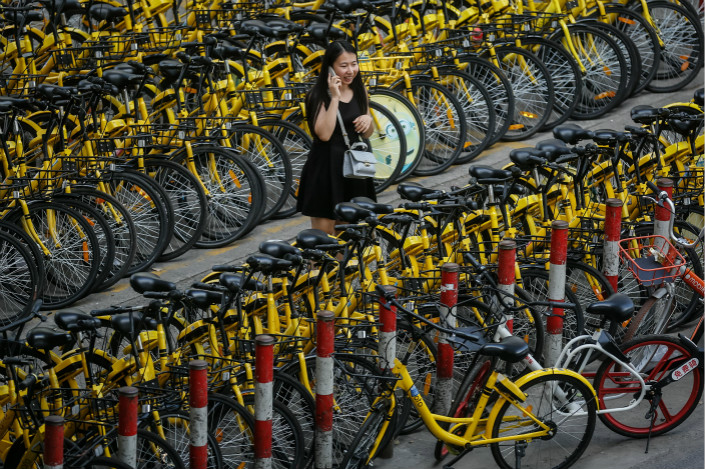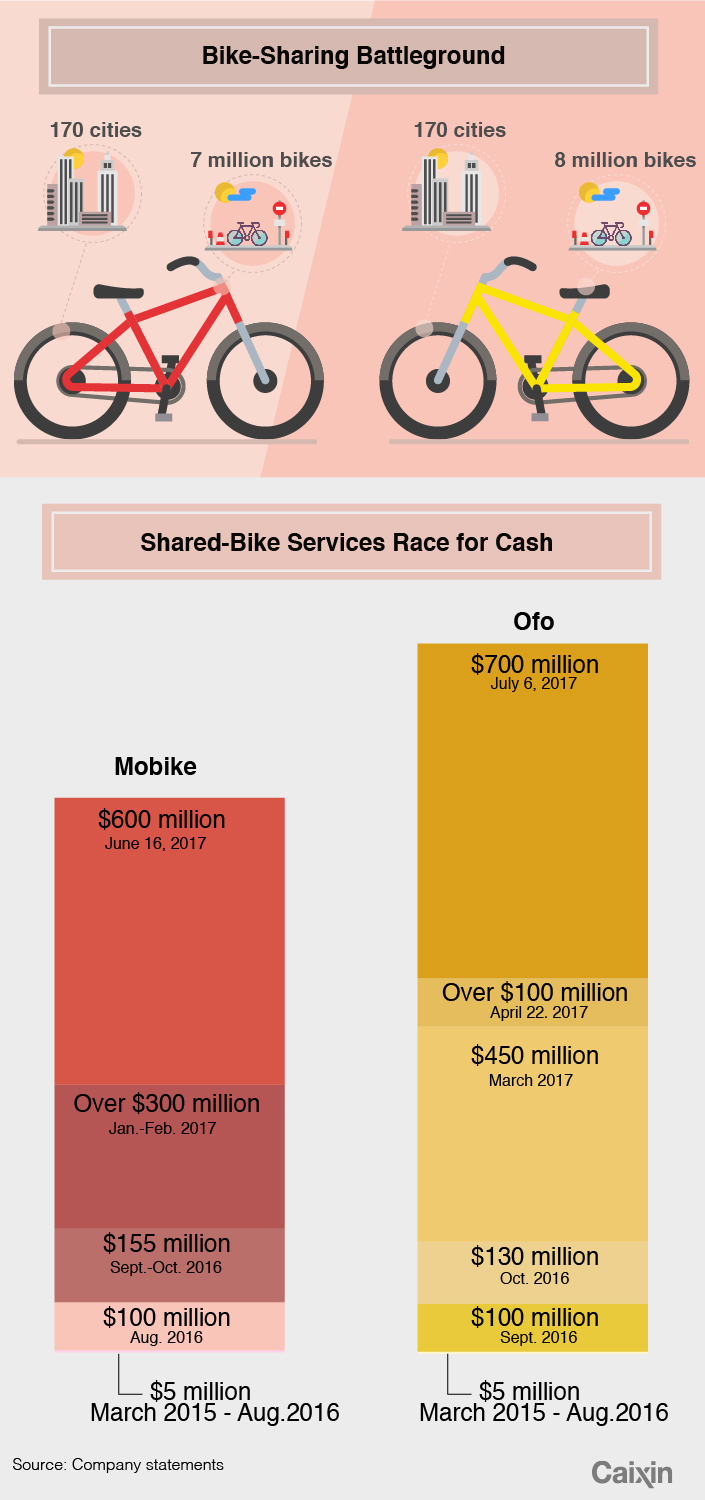Frustrated Cities Clamp Down on Bike-Share Clutter

Some of China’s biggest cities have called a timeout on the companies responsible for crowding sidewalks with shared bikes.
Officials say the colorful rental bikes parked in long rows outside subway stations, office buildings and shopping malls are worsening, rather than reducing, urban congestion.
Shenzhen, Shanghai, Zhengzhou, Hangzhou and Nanjing are among the cities hitting the bike-sharing “pause” button in recent weeks.
The Guangzhou city government on Tuesday reiterated its temporary ban on new bike-share two-wheelers, reminding sharing companies that they must stop adding the vehicles to street-side parking sites. The ban is to continue until companies devise better strategies for managing the bikes already available and clearing out abandoned wrecks that are encroaching on public space.
Despite the ban, Guangzhou transportation authorities said they have noticed 15 companies continuing to pour new bikes into the city, which is famously progressive and initially welcomed bike-sharing with open arms.
One of the largest bike-sharing firms, Ofo Inc., has been among the worst violators of the government ban in Guangzhou, where the local resident-to-bike ratio has now reached 15-to-1, according to the official Xinhua News Agency.
Egged on by multibillion-dollar investments tied to venture capital firms, bike-sharing companies have raced against one another to win the commuters who pay for rentals using smartphone apps. Each rival wants to be the sharing company offering the most and most-easily accessible bikes.
Bike-sharing services were originally designed to provide low-cost, zero-emission, short-distance transportation for the “last kilometer” of an urban trip, often between a subway stop and a home or workplace. But since last year, the industry has spun nearly out of control in the face of investor enthusiasm.
What was supposed to be a no-carbon cure for congestion has been called an urban disease, highlighted by haphazard parking, poor management and huge quantities of bikes clogging sidewalks. Abandoned bikes have been found strewn in streets, stacked on tree branches, lying in rivers and piled on empty lots.
 |
China’s 120 private, shared-bike companies have together put about 16 million bikes on city streets across the nation, according to China’s transportation ministry. That roughly translates into one shared bike for every 50 urban dwellers.
The nation’s legislators have been trying to tackle bike-sharing issues. During a review of a proposed law against unfair competition, members of one legislative council proposed a rule preventing large investment houses from trying to overwhelm competitors by accepting huge losses — and wasting resources — through unreasonable business expansions.
Yet some cities have put few restrictions on bike-sharing companies while taking a soft approach to two-wheeler control.
Under a pilot project in some parts of downtown Beijing, for example, electronic “fences” have been built that prevent the operation of smartphone app-triggered bike locks outside designated areas. Anyone parking a bike outside the fence can’t lock the bike, and thus incurs charges until the lock is reactivated.
Contact reporter April Ma (fangjingma@caixin.com)

- 1Cover Story: China Carves Out a Narrow Path for Offshore Asset Tokenization
- 2Drownings Shake Chinese Enthusiasm for Travel to Russia
- 3Over Half of China’s Provinces Cut Revenue Targets
- 4Li Ka-Shing’s Port Empire Hit by Forced Takeover Amid Panama Legal Dispute
- 5In Depth: China’s Mutual Fund Industry Faces Overhaul After a Banner 2025
- 1Power To The People: Pintec Serves A Booming Consumer Class
- 2Largest hotel group in Europe accepts UnionPay
- 3UnionPay mobile QuickPass debuts in Hong Kong
- 4UnionPay International launches premium catering privilege U Dining Collection
- 5UnionPay International’s U Plan has covered over 1600 stores overseas






